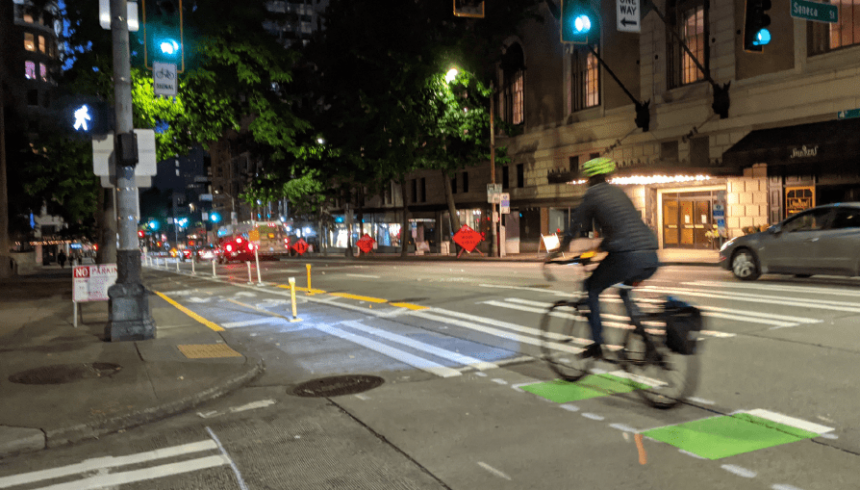The Seattle City Council just unanimously passed a back-to-the-basics Transportation Levy package focused on increasing safety, maintenance, and modernization — all while limiting the impact on taxpayers.
“This is a cost-effective investment that will save lives. Through collaboration and compromise, we have won a consensus levy proposal that will deliver on the everyday basics in an extraordinary way. From filling potholes and keeping our bridges running to addressing the safety crisis playing out on our streets, this is an investment in our future that our entire community can be proud of,” said Councilmember Rob Saka (District 1, Chair of the Select Committee on the 2024 Transportation Levy)
The current transportation levy was passed in 2015 and is set to expire this year. It accounts for roughly 30 percent of the Seattle Department of Transportation’s budget for core services and new projects.
Once signed by Mayor Bruce Harrell, the Transportation Levy will go to a final vote of the people on this November’s ballot.
How will the funding be spent?
Investing in our safety, economy, and climate
Councilmember Saka’s proposal, broadly speaking, would invest that funding in the following ways:
- $403 million in street maintenance and modernization
- $221 million in bridge infrastructure and safety
- $193 million in pedestrian safety
- $160.5 million in Vision Zero and school and neighborhood safety
- $151 million in improving transit corridors and connections
- $133.5 million for bicycle safety
- $100 million to install and maintain traffic signals and improve mobility
- $69 million to better address climate change, protect the environment, and increase our tree canopy
- $66.5 million to activate public spaces, neighborhoods, and business districts
- $45 million for economy-focused improvements to our freight transportation system
- $7.5 million for good governance, oversight, and property tax relief education
Mitigating the impact on the most vulnerable
Chair Saka’s proposal would also include funding to help mitigate the effects of the transportation levy. The amendments would include a new $1.5 million fund for community outreach and education about property tax exemptions for qualified seniors, people with disabilities, and disabled veterans, for which more people are now eligible.
Increasing accountability, transparency, and good governance
Finally, the package would include increased accountability, transparency, and good governance requirements. Among other things, Chair Saka’s proposal would implement more detailed spending requirements, strengthen the levy’s oversight committee, and provide funding for auditing.
How much will the levy cost?
The 2024 Transportation Levy package would invest $1.55 billion over the next eight years. That’s $150 million less than a separate proposal that the Council voted down last week.
Levies in Seattle are funded by property owners. Under this levy proposals, the estimated property tax bill for the median assessed value home would be $499 per year. That’s $18.58 per month more than the expiring levy.
Quotes
“This data and community informed proposal invests in the critical infrastructure Seattle needs to support a safe, sustainable, and reliable transportation system – from critical bridge and road maintenance and modernization to improved connections to transit and within neighborhoods. I look forward to signing this legislation tomorrow,” said Mayor Bruce Harrell.
“We’re charting a new path focused on delivering the bold basics of local government. Seattle is a world-class city, but today, in the year 2024, there are far too many places in our city where basic infrastructure, like sidewalks, either does not exist or is in disrepair. This levy will work to address those inequities and keep Seattle moving forward,” said Councilmember Joy Hollingsworth (District 3, Vice Chair of the Select Committee on the 2024 Transportation Levy)
“This levy is a win-win for Seattle. It will make our transportation system stronger, safer, and more reliable, all while creating thousands of living-wage, union jobs in our community. This is about our community coming together to invest in our people – and when Seattle does that, history shows we can accomplish great things,” Nicole Grant, IBEW Local 36.


